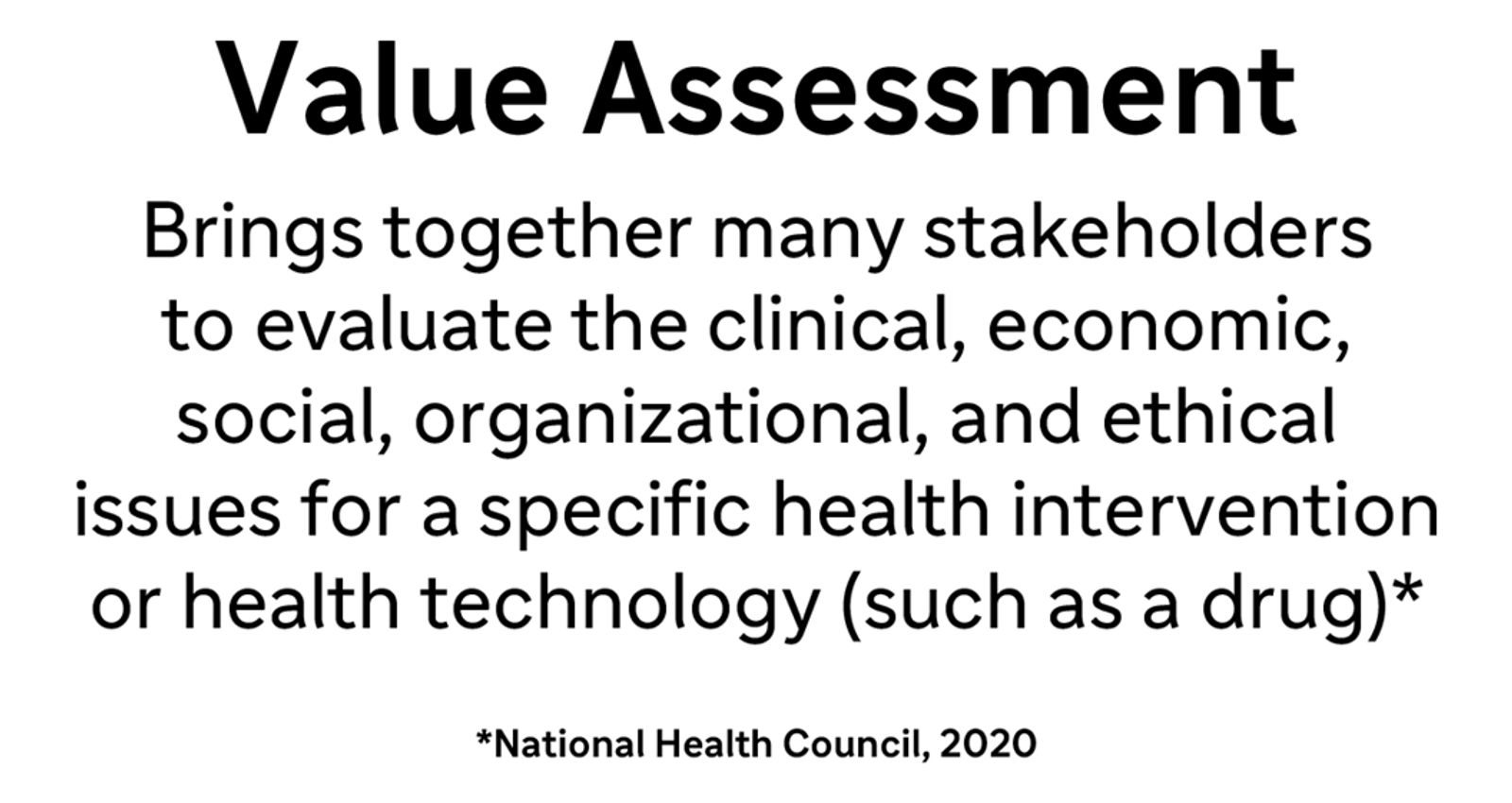
Sanofi's Commitment to Patient-Centered Healthcare
We have a commitment to promoting healthcare systems that make our treatments accessible and affordable to patients in need. We encourage a transition to value-driven healthcare—when access is aligned with the highest-quality care—while enabling us to continue to advance scientific knowledge and bring innovative treatments to patients worldwide.
One component of value-driven healthcare is the concept of “value assessment” which has gained significant ground in the United States following the lead of “health technology assessment” around the globe.
In order to ensure that patients can access the right therapies at the right time, Sanofi is committed to conducting, communicating, and translating evidence to demonstrate the value of our medicines and vaccines. Most importantly, Sanofi is committed to elevating and centering patient voices as the most important stakeholder in the health care system. It is critical that patients and patient advocates participate in evidence generation and value assessment processes to make both more patient-centric.
The resources on this page are intended to help patient advocates prepare for value assessment and evidence generation through current processes. These resources will be updated on a regular basis as we work together in the continued evolution towards a more patient-centered health care system.

Principles That Define Our Approach to Value
- The shift to value-driven health care is appropriate.
- Value is multi-faceted and value assessment should reflect this.
- Patient experiences, perspectives, and priorities should be meaningfully incorporated throughout value assessment.
- Value assessment should be transparent to all stakeholders.
- Diversity of patient populations is important to understand and should be incorporated into value assessment.
- Patients and patient advocates should have access to the information and resources necessary to fully participate in value assessment processes.
Value Assessment 101: New to Value assessment?
Access resources from the National Health Council to get started.
Sanofi’s Approach to Value
Value Assessment Organizations and Frameworks
Click on an organization’s link to explore high-quality, evidence-based resources on healthcare value.
Patient Advocacy Organizations
Trade and Membership Associations
Academic and Research Resources
MAT-US-2304501-v3.0-07/2024
